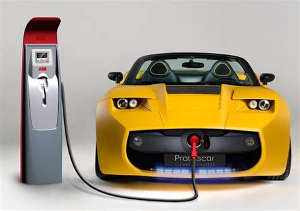High Fuel Costs Spike EV Interest

Motorists have had a tough time over the past couple of years. Since 2020, prices for new and used cars have risen considerably with the used car market especially buoyant for sellers.
Private and motor trade Insurance policy costs have also continued to rise, with recent changes to deals offered to existing policyholders also adversely affecting prices.
However, the fuel crisis of March 2022 has stimulated one area of the motor trade in particular; interest in electric vehicles has once again strengthened.
According to a recent study by Auto Trader, consumers are once again seeking out new deals and showing more interest in switching to electric cars.
With fuel at a record high at the pumps, the survey found that around 20% of adverts browsed by their readers were for electric vehicles.
This is a significant leap forward, as that figure had dropped to around 16% the previous month. Intriguingly, the cost and availability of petrol does seem to correlate with interest in new technology.
Over a quarter of advertising hits seen during Autumn’s UK fuel shortage crisis were for electric cars.
However, these new vehicles still attract a heavy premium, and indications generally suggest that UK car buyers are less interested in electric cars on the whole than in previous years.
The average cost of a like for like electric vehicle can range from 30 to 50% more than a conventional petrol or diesel version.
The aforementioned price hikes now show that a budget of £20,000 would only give you a choice of three new electric cars in 2021 and early 2022, compared to four times that number at the start of the decade.
It’s unsurprising that the number of motorists test driving such cars on trade plates is not increasing in line with government predictions – the cost of living crisis simply doesn’t allow people the luxury of spending so much on these vehicles at a time when food, domestic and vehicle fuel and other living costs are rising quickly.
It is however still worth considering the long term savings that electric vehicles can offer, with an estimated £100 to £150 saved per 1000 miles driven, based on comparative fuel costs – though with domestic energy bills hitting new heights that figure may well vary considerably.

Once technology also affords longer battery life and expanded driving range, the demand for electric cars should increase as well.
If you are considering making the switch to a hybrid or fully electric car, there remain many factors to consider. If you can afford the initial outlay or are prepared to ride out the current high fuel costs and for the technology to improve further, then there’s no doubt that such motoring will become increasingly attractive.







